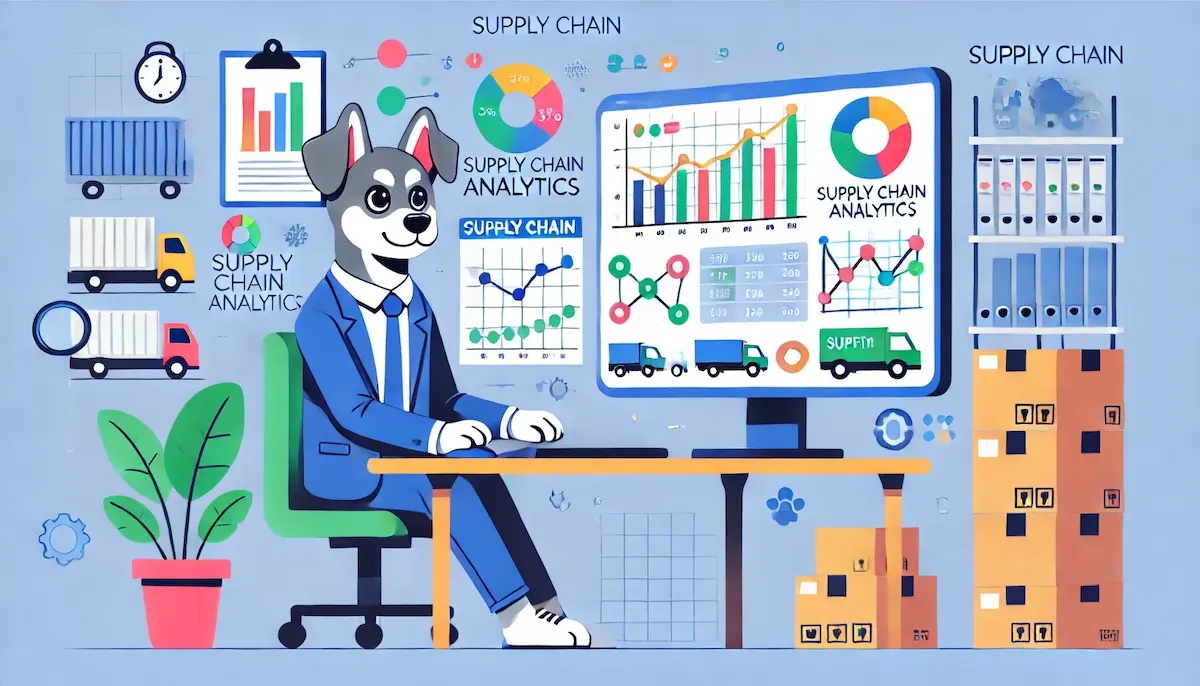Supply chain analytics is a transformative practice that involves leveraging data to gain insights into the complexities of the supply chain. This approach helps businesses enhance efficiency, reduce costs, and improve overall supply chain performance. By analyzing data from various stages of the supply chain, companies can make informed decisions, predict disruptions, and optimize operations. Let’s delve into what supply chain analytics entails and why it’s crucial for modern businesses.
What is Supply Chain Analytics?
Supply chain analytics involves the use of data analysis and modeling to understand and optimize the flow of goods, services, and information from suppliers to customers. This includes examining data related to procurement, production, inventory management, transportation, and distribution. The goal is to identify inefficiencies, predict future trends, and develop strategies to improve the supply chain’s effectiveness.
Why is Supply Chain Analytics Important?
Supply chain analytics offers numerous benefits that are critical to the success of any business involved in the production and distribution of goods. Here are several reasons why it’s important:
Enhancing Efficiency
By analyzing data from various points in the supply chain, businesses can identify bottlenecks and inefficiencies. This allows them to streamline operations, reduce waste, and enhance overall efficiency.
Reducing Costs
Supply chain analytics helps businesses uncover cost-saving opportunities, such as optimizing inventory levels, reducing transportation expenses, and improving supplier negotiations. These savings can significantly impact the bottom line.
Improving Customer Satisfaction
Understanding and predicting customer demand allows businesses to ensure product availability and timely delivery. This leads to higher customer satisfaction and loyalty.
Mitigating Risks
Supply chain analytics enables businesses to predict and manage risks, such as supplier disruptions, transportation delays, and market fluctuations. By proactively addressing potential issues, companies can maintain continuity and resilience.
Driving Strategic Decision-Making
Data-driven insights from supply chain analytics support strategic decision-making, such as entering new markets, expanding product lines, or adjusting sourcing strategies. These decisions are based on a thorough understanding of supply chain dynamics.
How is Supply Chain Analytics Conducted?
Supply chain analytics involves several steps, from data collection to actionable insights. Here’s an overview of the process:
Data Collection
Data is collected from various sources across the supply chain, including suppliers, manufacturers, warehouses, transportation providers, and retailers. This data encompasses procurement records, production schedules, inventory levels, transportation logs, and sales data.
Data Processing
The collected data is cleaned and processed to ensure accuracy and consistency. This step involves handling missing values, normalizing data, and integrating data from different sources.
Data Analysis
Various analytical techniques are applied to the processed data. Common methods include:
- Descriptive Analytics: Summarizing historical data to understand past performance and trends.
- Predictive Analytics: Using statistical models and machine learning to forecast future demand, supply, and potential disruptions.
- Prescriptive Analytics: Recommending actions based on predictive insights to optimize supply chain operations.
- Simulation and Optimization: Modeling different scenarios to test the impact of various strategies and identify the best course of action.
Data Visualization
The results of the analysis are often presented using data visualization tools. Visual representations like charts, graphs, and dashboards make it easier to interpret complex data and communicate findings effectively.
Actionable Insights
The insights gained from supply chain analytics are used to inform business decisions. This can involve optimizing inventory management, improving supplier relationships, enhancing production planning, and refining distribution strategies.
Ethical Considerations
Ethical considerations are crucial in supply chain analytics. Businesses must ensure data privacy and security, especially when dealing with sensitive information. Compliance with regulations like GDPR and CCPA is essential to maintain trust and integrity in data practices.
Conclusion
Supply chain analytics is a powerful tool for businesses aiming to optimize their supply chain operations and drive growth. By leveraging data-driven insights, companies can enhance efficiency, reduce costs, improve customer satisfaction, and mitigate risks. As supply chains become increasingly complex, the importance of supply chain analytics in maintaining a competitive edge and achieving long-term success will continue to grow.
Blockfine thanks you for reading and hopes you found this article helpful.
